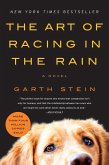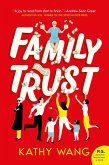DINGS tells of a mother's struggle to support her son in the midst of a mysterious condition. Conner's school believes that he is not ready for promotion into the third grade. His teacher recommends that he repeat the second grade. Conner's dad is on a combat tour in 2006-7 Iraq; the adults in the boy's life assume that stress and anxiety about his father serving in a combat theater have interfered with his school achievement. Meanwhile, Sandra is embittered; she is forced to deal with her son's problem alone.
A psychologist identifies Conner's anxieties and works to alleviate the child's stress. But, the boy's actual condition eludes the adults. He has unrecognized blank outs-his friends think that he acts "weird" sometimes.
Sandra's husband returns from war, but all is not well. He has changed. She recognizes PTSD symptoms-Sam drinks more, snaps at the family and he has bad dreams-yet, he denies that anything is wrong. Sandra's emotional stresses mount. She sees that her husband is incapable of emotionally supporting her as they struggle to understand their son's difficulties; she is uncertain that she can keep her family together.
One night, Conner gets a high fever and he has a convulsion. At the local E.R., he has a brain CT scan and he gets a spinal tap. The doctor suggests to the parents that epilepsy is a possible cause of the convulsion. He refers Conner to a neurologist. Sandra interprets the mere mention of epilepsy as a personal affront. How could her son have such a stigmatizing and debilitating disease? He has never had any seizures before.
All of their lives change when they meet the neurologist. When epilepsy is diagnosed, Conner's mother is devastated. She questions if her child can be considered normal now-could he ever really lead a normal life?
The reader will accompany this family as they travel their fascinating joint clinical and emotional journey to help their son. Sixty million people worldwide, including three million Americans, are afflicted with epilepsy.
DINGS is fascinating and educational reading for anyone, and especially those touched directly or indirectly by this condition.
For the readers' convenience, a practical glossary of epilepsy terms and medical information is appended at the end of the book.
A psychologist identifies Conner's anxieties and works to alleviate the child's stress. But, the boy's actual condition eludes the adults. He has unrecognized blank outs-his friends think that he acts "weird" sometimes.
Sandra's husband returns from war, but all is not well. He has changed. She recognizes PTSD symptoms-Sam drinks more, snaps at the family and he has bad dreams-yet, he denies that anything is wrong. Sandra's emotional stresses mount. She sees that her husband is incapable of emotionally supporting her as they struggle to understand their son's difficulties; she is uncertain that she can keep her family together.
One night, Conner gets a high fever and he has a convulsion. At the local E.R., he has a brain CT scan and he gets a spinal tap. The doctor suggests to the parents that epilepsy is a possible cause of the convulsion. He refers Conner to a neurologist. Sandra interprets the mere mention of epilepsy as a personal affront. How could her son have such a stigmatizing and debilitating disease? He has never had any seizures before.
All of their lives change when they meet the neurologist. When epilepsy is diagnosed, Conner's mother is devastated. She questions if her child can be considered normal now-could he ever really lead a normal life?
The reader will accompany this family as they travel their fascinating joint clinical and emotional journey to help their son. Sixty million people worldwide, including three million Americans, are afflicted with epilepsy.
DINGS is fascinating and educational reading for anyone, and especially those touched directly or indirectly by this condition.
For the readers' convenience, a practical glossary of epilepsy terms and medical information is appended at the end of the book.
Dieser Download kann aus rechtlichen Gründen nur mit Rechnungsadresse in A, D ausgeliefert werden.









